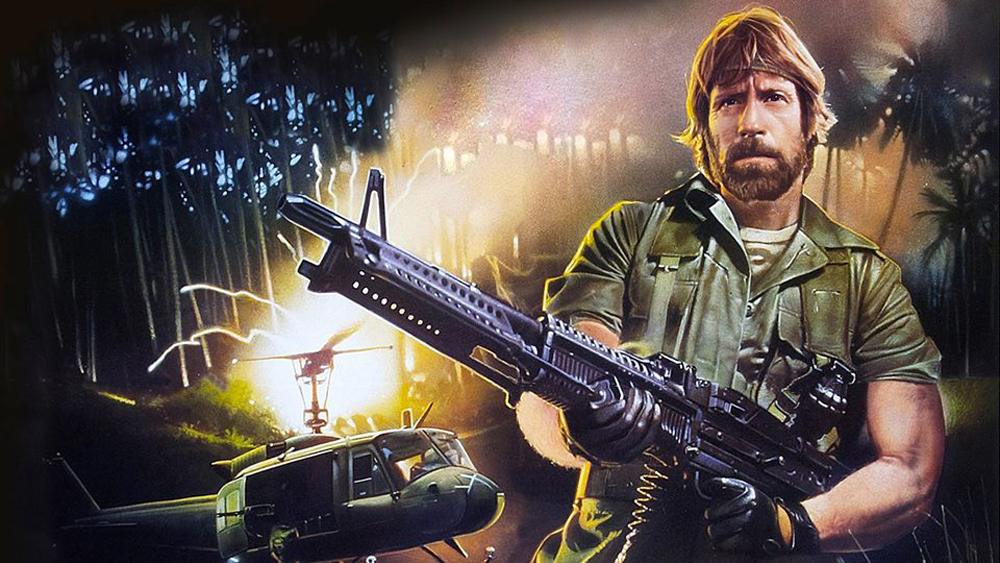In what would ultimately be their final act as a producing duo due to Menahem Golan’s untimely passing this past August, the two men who created the ’80s action film juggernaut Cannon Films commissioned a documentary “The Go-Go Boys,” which premiered earlier this year at Cannes after learning Mark Hartley would be recounting their heyday in “Electric Boogaloo: The Wild, Untold Story of Cannon Films.” This actually becomes a cheeky footnote in “Boogaloo,” since after spending 105 minutes illustrating all the films that Golan and his cousin and business partner Yoram Globus made as a response to other, more handsomely produced films in the marketplace, the irony is hardly lost on Hartley. What isn’t said in that end title card, though is alluded to by interviewees throughout Hartley’s film, is how Golan and Globus often didn’t understand what the movies they’d so readily rip off were actually about, which makes “Electric Boogaloo” an even more fitting tribute to the Israeli moguls since one can’t imagine a more loving, entertaining portrait of their crazy adventures in the film business.
Naturally, Golan and Globus didn’t make themselves available to their competitor – a “60 Minutes” segment proves invaluable to giving the two a voice in the film. Nor for that matter did many of the stars who the two helped create such as Jean Claude Van Damme or Chuck Norris, but “Electric Boogaloo” once again displays the “Not Quite Hollywood” director’s secret weapon – the below-the-line talent, who unencumbered by celebrity status, feel free to share the berserk anecdotes imaginable about the duo. Sure, Elliott Gould, Bo Derek and Richard Chamberlain show up to describe the skirmishes they had with Golan and Globus (or in Chamberlain’s case, “Allan Quartermain” co-star Sharon Stone), but perhaps no film other than Wendy Apple’s 2004 doc “The Cutting Edge: The Magic of Movie Editing” has featured so many editors in front of the camera such as Alain Jakubowicz, Mark Goldblatt and Mark Helfrich recalling the often bizarre and byzantine nature of Cannon productions, which were usually made on the fly (“Breakin” went from conception to completion in a mere three weeks) and as one interviewee describes of “the Cannon Way,” always “resembled something minus good taste.”
Hartley gleefully races through the company’s rise initially on the back of softcore porn in Israel, then the “Death Wish” and “Delta Force” series once making a name for themselves in America before the company went in search of respectability with such directors as John Cassavetes and Norman Mailer and ultimately burst at the seams when their ambition finally exceeded their reach. No less than Tobe Hooper and Franco Zeffirelli attest that the two were the best producers they ever worked for and Golan and Globus’ passion for show business – in all aspects – would only seem to be outpaced by the exuberance with which Hartley jumps between cleverly curated clips of action, T & A and whatever you’d call Golan’s musical “The Apple” and the eager participants he interviews.
There does, however, seem to be some slight fatigue on Hartley’s part, already having made the move to narrative features with “Patrick” last year and his introductory remarks at the Toronto Film Fest saying that “Electric Boogaloo” was pushed forward by the fans sounding less like a celebratory call to arms than an admission of obligation after such comprehensive histories of Aussie and Filipino exploitation flicks. It isn’t a bad thing Hartley’s main concern is with having a good time, but there seems to be less attention to detail when it comes to the overall structure of “Electric Boogaloo,” which has an emphasis on individual films that somewhat diminishes Golan/Globus’ real large-scale achievements – in pioneering the concept of pre-selling foreign territories based on what stars were attached to their films – as well as their parting on less than amiable terms. An indistinct timeline causes additional confusion. Still, if this is Hartley’s last documentary for a while, he’s going out with a bang, and of course, the film’s subjects wouldn’t have it any other way.
“Electric Boogaloo: The Wild, Untold Story of Cannon Films” is now available on Netflix.




